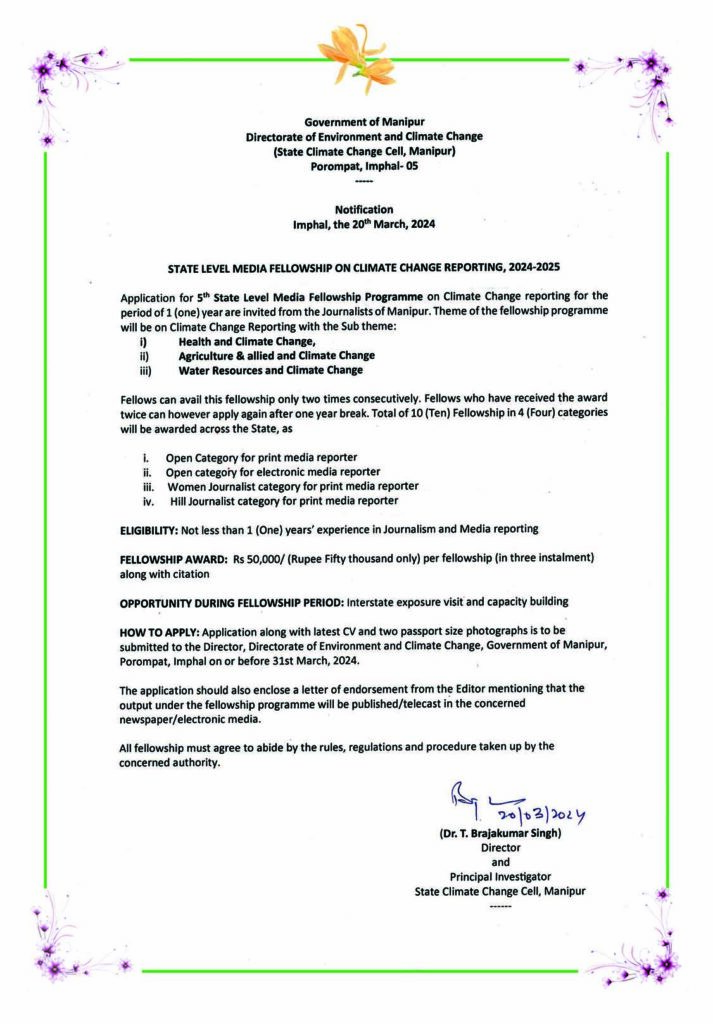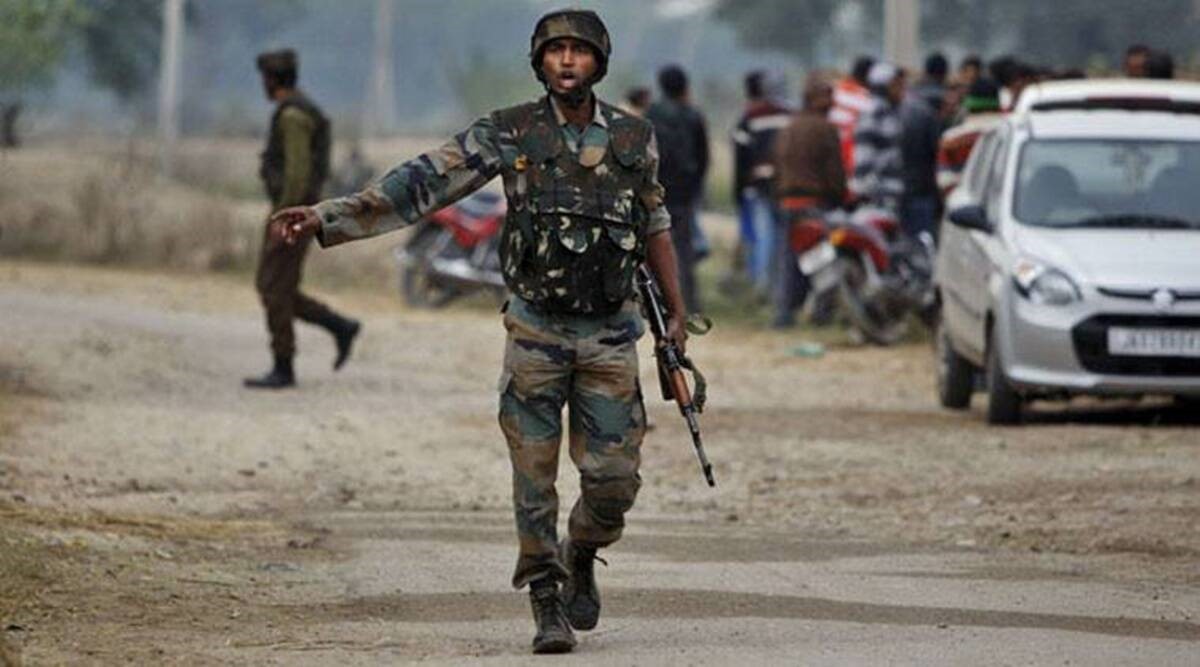Despite the people of India’s Northeast demand to repeal the Armed Forces Special Powers Act (AFSPA), 1958 from Indian Statute, the Union Home Ministry on March 31 has announced the withdrawal of disturbed area status under AFSPA from certain districts of the States of Assam, Manipur and Nagaland.
The people of India’s Northeast demand repeal of the AFSPA because the Act, which has been in force in India’s Northeast since 1958, which was originally made for Assam and Manipur, and extendable to the whole of the Northeast by further amendments, gives unbridled powers to the armed forces and the Central Armed Police Forces deployed in “disturbed areas” to kill anyone acting in contravention of law, arrest and search any premises without a warrant and protection from prosecution and legal suits without the sanction of the Government of India.
Both the Government of India and State governments have concurrent powers to issue a notification under Section 3 of the Act.
What shocks the people of the Northeast is the extension of Disturbed Area Status under Section 3 of AFSPA further suppressing the voice of the people against the draconian law, which is not applicable in the rest of the democratic India.
In the wake of Oting Massacre of December 4, 2021 in which 14 civilians were killed by the Indian paramilitary, the Northeast people’s protests demanding repeal of AFSPA was far and wide in the Northeast and the movement against the AFSPA has renewed after Irom Chanu Sharmila ended her 16 years’ hunger strike demanding repeal of AFSPA ended on August 9, 2016.
In contrary to the demand of the Northeast people and condemnations of the Oting Massacre, the GOI and State Governments extended the Disturbed Areas in Nagaland, Manipur, Assam and Arunachal Pradesh in different Gazette notifications including post facto in case of Manipur.
However, in a significant development, the Union Home Minister Amit Shah on March 31 informed through his Twitter post that the Government of India has decided to reduce the ‘Disturbed Areas’ under Armed Forces (Special Powers) Act (AFSPA) in three Northeastern States of Assam, Manipur and Nagaland after decades.
“In a significant step, GoI under the decisive leadership of PM Shri @NarendraModi Ji has decided to reduce disturbed areas under Armed Forces Special Powers Act (AFSPA) in the states of Nagaland, Assam and Manipur after decades,” Amit Shah tweeted.
In another tweet, Union Home Minister Amit Shah said that the areas under AFSPA have been reduced as a result of improved security situation and fast-tracked development: “Reduction in areas under AFSPA is a result of the improved security situation and fast-tracked development due to the consistent efforts and several agreements to end insurgency and bring lasting peace in North East by PM @narendramodi government,” he said in another tweet.
Meanwhile a statement of Extrajudicial Execution Victim Families’ Association, Manipur (EEVFAM) and Human Rights Alert (HRA) issued by Renu Takhellambam President of EEVFAM and Babloo Loitongbam Executive Director of HRA on April 1 warmly welcome the revocation of the “disturbed area” status under the Armed Forces (Special Powers) Act, 1958 (AFSPA) from various parts of Assam, Nagaland and Manipur by the Government and said this is a step in the right direction.
Reports quoting Union Home Ministry statement said, to realise Prime Minister Narendra Modi’s vision of a peaceful and prosperous Northeast region, Union Home Minister Amit Shah has held dialogue with all the Northeast states on a regular basis. Most of the extremist groups have laid down their arms expressing their faith in the Constitution of India and the policies of the Modi government. About 7,000 militants have surrendered in the last few years.
While AFSPA is being removed completely from 23 districts and partially from one district of Assam from April 1, 2022, as many as 15 police station areas of six districts of Manipur will be excluded from the Disturbed Area Notification from April 1, 2022. In Nagaland, the Disturbed Area Notification is being withdrawn from 15 police stations in seven districts from April 1, 2022.
The Disturbed Area Notification is in force in the whole of Nagaland from 1995. Reports said the Government of India has accepted the recommendation of a committee constituted in this context for withdrawal of AFSPA in a phased manner. The Disturbed Area Notification is being withdrawn from 15 police stations in 7 districts in Nagaland with effect from 01.04.2022.
In 2015, AFSPA was in force in three districts of Arunachal Pradesh, 20 km belt of Arunachal Pradesh along the Assam border and in 16 police station areas in nine other districts of the state. This has been gradually reduced and the Disturbed Areas Notification is currently applicable in only three districts and in two police station areas in one other district of Arunachal Pradesh.
In Manipur, the “Disturbed Area” status under section 3 of the Armed Forces Special Powers Act, 1958 is withdrawn from the 15 police stations, including six withdrawn earlier, with immediate effect from April 1 for a period of one year, said Chief Minister Nongthombam Biren.
Of the total police stations seven are in Imphal West, four in Imphal East, one each in Thoubal, Bishnupur, Kakching and Jiribam.
The six police stations from where the Disturbed Area tag was withdrawn earlier in 2004 during the Congress government of Chief Minister Okram Ibobi are Imphal, Lamphel, Singjamei, Porompat, City and Heingang encompassing seven Assembly Constituencies.
The nine police stations (PS) are Sekmai, Lamsang and Patsoi PS in Imphal West, Lamlai PS and Irilbung PS in Imphal East, Bishnupur PS in Bishnupur district, Kakching PS in Kakching district, Thoubal PS in Thoubal district and Jiribam PS in Jiribam district. With this, the total police stations from where AFSPA is withdrawn rounded up to 15.
Chief Minister Nongthombam Biren said on March 31 that the “historic decision” is a result of the robust development and improvement of the law and order in the state.
“It is just the beginning. The state government will continue to mount pressure on the Centre until AFSPA is removed from the whole state,” he said adding, “The Centre might be lifting up the AFSPA in a phase-wise manner.”
The chief minister also informed that the state government will initiate negotiation with the insurgent groups and also worked to complete the ongoing negotiation talk with the UG groups under SoO to end insurgency from Manipur very soon and for better improvement of the law and order in the remaining parts of the state.
Regarding why AFSPA was not removed from any of the hill districts where law and order are stable, Chief Minister Biren said, “The reason why AFSPA was not removed from Hills areas could be because most of the hill districts are in a sensitive border area. Nevertheless, the state will continue to press the Centre until AFSPA is completely removed from the whole area of Manipur”.
However, withdrawal of Disturbed Area Status under AFSPA from the jurisdictions of nine more police stations of the six valley districts only appears to be dividing between the hills and valleys while the Bharatiya Janata Party Government claims bridging the “gap” between the Hills and Valleys.
The partial withdrawal of Disturbed Area Status instead of repealing the draconian Act, AFSPA which is applicable only in the Northeast but not in the rest of India, cannot stop dehumanising the Northeast people and questioning Indian democracy in the region. The people of India’s Northeast still has a long way to struggle further to get the draconian act, AFSPA repealed from democratic India’s statute.











2 thoughts on “Long Struggle Ahead for Northeast People to Get Draconian Act AFSPA Repealed From Democratic India’s Statute”
Well documented and analysed article. Thank for sharing yambung.
Well documented and analysed article.
Thank yambung for sharing👌
Comments are closed.